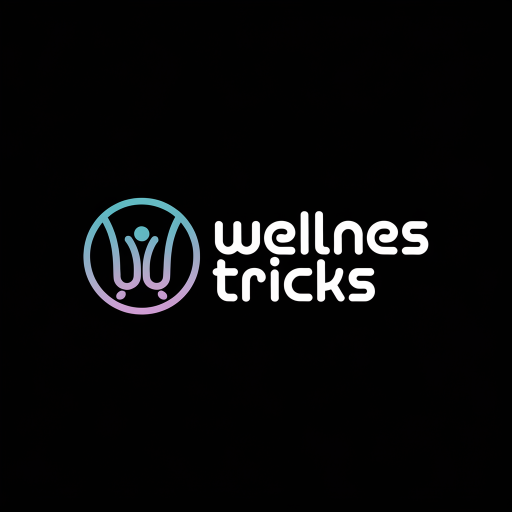Why Your Stress Relief Methods Might Not Be Working
You might feel like you’re doing everything right to relieve stress, yet nothing seems to change. It’s frustrating when methods just don’t work, especially when you’re trying to take care of yourself. The truth is, many common approaches only scratch the surface. Understanding what really drives your stress could be the key to finding effective strategies. So, what are the deeper, often overlooked factors affecting your wellbeing?
Misunderstanding the Source of Stress
Misunderstanding the source of stress can often feel like navigating a maze without a map. You might think you’re addressing the problem, but if you’re targeting the wrong issue, your stress relief methods could be futile.
Common stress relief mistakes include overlooking underlying causes, like unmet needs or unhealthy relationships. Instead of temporary fixes, focus on identifying root issues.
Reflect on your feelings and experiences; they hold valuable insights. By understanding your stress sources, you can tailor effective strategies that truly resonate, leading to genuine relief.
Trust yourself to explore deeper; it’s the first step toward lasting calm.
Inconsistent Practices
You might find that inconsistent practices can be a roadblock to effective stress relief.
When you lack a routine or engage infrequently in your relaxation techniques, it’s no wonder you feel overwhelmed.
Establishing a steady practice can make a real difference in managing your stress levels. Incorporating transformative changes in your daily habits and mindset can significantly enhance your ability to cope with anxiety.
Lack of Routine
When life feels chaotic, lacking a consistent routine can add to your stress rather than alleviate it. Routines provide structure and predictability, offering you a sense of control. When your practices vary, your stress relief effectiveness diminishes. Consider these areas where routine can make a difference:
| Morning | Afternoon | Evening |
|---|---|---|
| Meditation or deep breathing | Short walk or stretch | Reading or journaling |
| Healthy breakfast | Healthy snack | Relaxing bath or sleep routine |
| Plan your day | Mindful eating | Disconnect from screens |
Creating a regular routine helps you recharge and manage stress effectively.
Infrequent Engagement
Life’s unpredictability can make it tempting to engage in stress relief practices only sporadically. You might find yourself diving into meditation or exercise when stress peaks, but that inconsistency can hinder your progress.
To truly reap the benefits, it’s essential to make these practices part of your regular routine. Instead of waiting for overwhelming stress, schedule time for self-care. Consistent engagement helps reinforce relaxation techniques, making them more effective.
Over-Reliance on Avoidance Techniques
Avoidance techniques can feel like a quick escape from stress, but relying on them for too long often leads to unresolved issues.
You might find yourself caught in a cycle of procrastination, where temporary relief becomes a hurdle to tackling what really matters.
Recognizing this pattern is the first step toward more effective stress management strategies. Incorporating natural anxiety relief techniques can help you address the root causes of your stress instead of just masking them.
Temporary Escape vs. Resolution
While seeking a temporary escape from stress can feel comforting in the moment, relying too heavily on avoidance techniques can hinder true resolution.
You might find solace in distractions like binge-watching or scrolling through social media, but these methods often only mask the underlying issues. Instead of truly addressing what’s bothering you, they provide a brief reprieve that leaves stress unresolved.
Embracing mindful practices or engaging in conversations about your feelings can create lasting change.
Cycle of Procrastination
Relying on avoidance techniques can lead you into a cycle of procrastination that feels nearly impossible to escape. You might think that avoiding tasks provides temporary relief, but this often creates more stress in the long run.
Consider these common patterns:
-
Delay Decisions: You put off making choices, fearing the stress of consequences.
-
Distract with Comfort: You indulge in distractions like binge-watching shows instead of tackling responsibilities.
-
Overthink: You spiral into endless worry about tasks, making them seem larger than life.
It’s okay to feel overwhelmed; recognizing this cycle is the first step toward breaking it.
Neglecting Physical Health
Neglecting your physical health can create a domino effect on your overall well-being, often leading to increased stress levels. When you skip meals, forgo exercise, or lack sufficient sleep, your body responds negatively, making you more susceptible to anxiety and tension.
You might feel sluggish or irritable, which only heightens your stress. Prioritizing your workouts, eating nourishing foods, and establishing a sleep routine can significantly improve your resilience against stress. Additionally, incorporating easy daily habits to boost your immunity can enhance your physical health and help manage stress more effectively.
Lack of Personalization in Stress Relief Strategies
When stress relief strategies don’t align with your unique needs, they can feel ineffective and frustrating.
It’s essential to find what truly resonates with you. Consider these personalized strategies:
-
Explore Various Techniques: Try yoga, meditation, or journaling to see what you connect with.
-
Adjust Frequency and Intensity: Some might need daily practices, while others may thrive with weekly sessions.
-
Identify Triggers: Understand what situations trigger your stress and tailor your approach accordingly.
Additionally, incorporating techniques like visualization for anxiety relief can provide effective support during high-stress moments.
Ignoring the Importance of Mindfulness
While many people rush through their days, often ignoring the significance of mindfulness can deepen stress levels and diminish overall well-being. You might find yourself overwhelmed, feeling like life’s a blur.
Embracing mindfulness allows you to pause and appreciate the present moment, helping you recognize your thoughts and feelings without judgment. This simple practice can enhance your emotional resilience and clarity, making challenges feel more manageable. In fact, studies show that just 10 minutes of daily meditation can lead to numerous benefits such as reduced stress and improved focus.
Try incorporating short mindfulness exercises into your routine, whether through breath awareness, meditation, or even mindful walking. By prioritizing mindfulness, you’re not just relieving stress; you’re nurturing a healthier, more balanced you.

